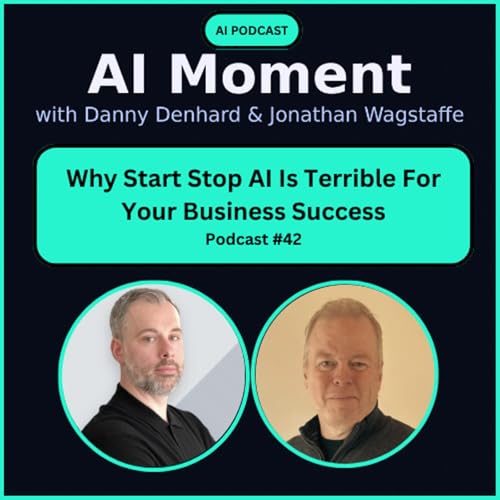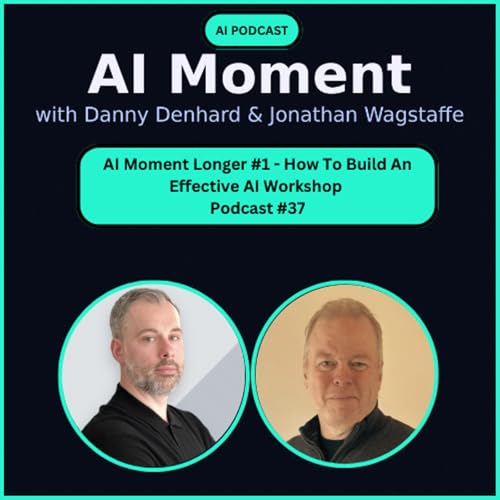The AI Moment: AI Is More Than Just The Web
Want to go deeper on our newsletter that supports each and every episode at dannydenhard.com/aipod
In this week's episode of The AI Moment, Jonathan and I step away from the keyboard to explore the "extended world of AI." Too often, the conversation is dominated by chatbots and browser-based tools, but the most disruptive shifts are happening in the physical world.
We discuss the imminent arrival of autonomous vehicles, specifically Waymo’s launch in London scheduled for 2026. This isn't just a transport update; it marks a pivotal shift in how we trust technology.
Jonathan highlights a crucial technical detail often overlooked: these vehicles aren't relying on the cloud.
They run on Small Language Models (SLMs)—highly efficient, on-device AI that functions offline. This is a massive signal for business leaders: you don't always need a giant, expensive model to solve complex problems.
We also dive into the next generation of wearables: moving from watches to smart jewellery and glasses.
This brings us to the core tension of the episode: Privacy vs. Utility. We seem willing to trade our data for convenience, like a watch predicting the flu before we feel it.
However, I introduce the concept of "For Me vs. Against We." Smart glasses might be useful for me, but do they work against society by recording others without consent?
As we approach 2026, which we identify as the "ROI Year" for AI, understanding these physical and ethical implications is no longer optional.
Key Takeaways:
The Rise of SLMs: Waymo proves that Small Language Models are robust enough for life-critical tasks. Businesses should look to SLMs for efficient, offline, and specific solutions rather than defaulting to massive LLMs.
The 2026 Timeline: We agree that 2026 is the year AI ROI "explodes." If you are still struggling with your data strategy today, you will be left behind when the hardware ecosystem matures in two years.
The "For Me vs. Against We" Test: Before adopting new tech (like smart glasses in the workplace), leaders must audit the social cost. Does the convenience for the user erode the trust of the wider team?
Quote of the Episode:
"Small language models, designed properly, can actually deliver an awful lot of performance." — Jonathan Wagstaffe
Do you have any questions for us? Contact us on ai@dannydenhard.com
 8 mins
8 mins Dec 19 202527 mins
Dec 19 202527 mins 11 mins
11 mins Dec 11 202510 mins
Dec 11 202510 mins 12 mins
12 mins 29 mins
29 mins 9 mins
9 mins Nov 28 202510 mins
Nov 28 202510 mins
